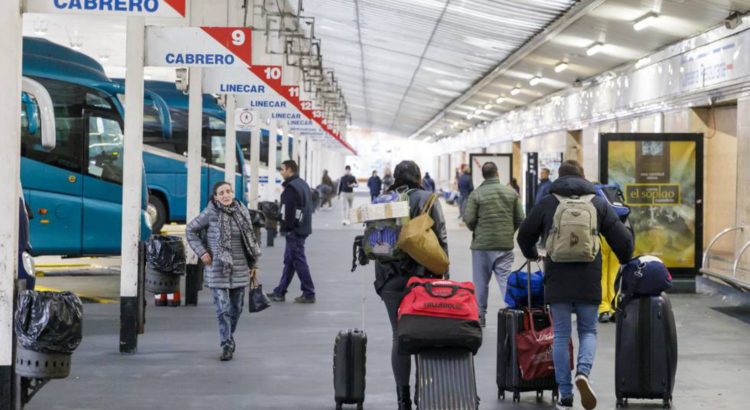We should stop thinking that after a peak in the Covid-19 epidemic things will gradually return to normal. The crisis will drag on. But this doesn’t mean the situation is hopeless.
In the Marx Brothers’ comedy Duck Soup, Groucho (as a lawyer defending his client at a court) says: “He may look like an idiot and talk like an idiot but don’t let that fool you. He really is an idiot.”
Something along these lines should be our reaction to those who display their basic distrust of state orders and see the lockdowns as a conspiracy of the state power which uses the epidemics as a pretext to deprive us of our basic freedoms: “The state is imposing lockdowns which deprive us of our freedoms, and it expects us to control each other in how we obey this order; but this should not fool us, we should really follow the lockdown orders.”
One should note how calls to abolish lockdowns come from the opposite ends of the traditional political spectrum. In the US, they are propelled by libertarian Rightists, while in Germany, small Leftist groups advocate them. In both cases, medical knowledge is criticized as a tool of disciplining people, treating them as helpless victims who should be isolated for their own good. What is not difficult to discover beneath this critical stance is the stance of not-wanting-to-know: if we ignore the threat, it will not be so bad, we’ll manage to pass through it…
The US libertarian Right claims lockdowns should be eased so that people will be given back their freedom of choice. But what choice is it?
As Robert Reich wrote: “Trump’s labor department has decided that furloughed employees ‘must accept’ an employer’s offer to return to work and therefore forfeit unemployment benefits, regardless of Covid-19… Forcing people to choose between getting Covid-19 or losing their livelihood is inhumane.” So yes, it is a freedom of choice: between starvation and risking your life… We are in a situation similar to that which occured in British coal mines in the 18th century (to name just one) where doing your work involved a considerable risk of losing your life.
But there is a different kind of admitting ignorance which sustains the severe imposition of lockdowns. It’s not that the state power exploits the epidemics to impose total control – I more and more think there is a kind of superstitious symbolic act at work here: if we make a strong gesture of sacrifice that really hurts and brings our entire social life to a standstill, we can maybe expect mercy.
When will this epidemic end and what will happen afterwards?
The surprising fact is how little we (including the scientists) seem to know about how the epidemics works. Quite often we get contradictory advice from authorities. We get strict instructions to self-isolate in order to avoid viral contamination, but when the infection numbers are falling, the fear arises that, in this way, we are just making ourselves more vulnerable to the expected second wave of the viral attack. Or are we counting on the hope that the vaccine will be here before the next wave? But there are already different variations of the virus, will one vaccine cover them all? All the hopes for a quick exit (summer heat, fast spread of herd immunity, vaccine…) are fading away.
One often hears that the epidemics will compel us in the West to change the way we relate to death, to really accept our mortality and the fragility of our existence – out of nowhere a virus comes and our life is over.
This is why, we are told, in the East, people are taking the epidemics much better – just as a part of life, of the way things are. We in the West less and less accept death as part of life, we see it as an intrusion of something foreign which you can indefinitely postpone if you lead a healthy life, exercise, follow a diet, avoid traumas…
I’ve never trusted this story. In some sense, death is not a part of life, it is something unimaginable, something that shouldn’t happen to me. I am never really ready to die, except to escape unbearable suffering. That’s why these days many of us focus every day on the same magic numbers: how many new infections, how many full recoveries, how many new deaths… but horrible as these numbers are, does our exclusive focus on them not make us ignore a much greater number of people who are at this moment dying of cancer, of a painful heart attack? Outside the virus, it’s not just life, it’s also dying and death. What about a comparative list of numbers: today, so many people got the virus and cancer; so many died of the virus and of cancer; so many recuperated from the virus and from cancer?
One should change our imaginary here and stop expecting one big clear peak after which things will gradually return to normal. What makes the epidemics so unbearable is that even if the full catastrophe fails to appear, things just drag on, we are informed that we reached the plateau, then things go a little bit better, but… the crisis just drags on.
As Alenka Zupančič put it, the problem with the end of the world is the same as with Fukuyama’s end of history: the end itself doesn’t end, we just get stuck in a weird immobility. The secret wish of all of us, what we think about all the time, is just one thing: when will it end? But it will not end: it is reasonable to see the ongoing epidemics as announcing a new period of ecological troubles – back in 2017, the BBC portrayed what might be waiting for us due to the ways we intervene in nature: “Climate change is melting permafrost soils that have been frozen for thousands of years, and as the soils melt they are releasing ancient viruses and bacteria that, having lain dormant, are springing back to life.”
Eventual rise of Singularity
The special irony of this no-end-in-view is that the epidemics occurred at a time when pop-scientific media were obsessed with two aspects of the digitalization of our lives. On the one hand, a lot is being written about the new phase of capitalism called ‘surveillance capitalism’: a total digital control over our lives exerted by state agencies and private corporations. On the other hand, the media are fascinated by the topic of direct brain-machine interface (‘wired brain’).
First, when our brain is connected to digital machines, we can cause things to happen in reality just by thinking about them. Then, my brain is directly connected to another brain, so that another individual can directly share my experience. Extrapolated to its extreme, wired brain opens up the prospect of what Ray Kurzweil called Singularity, the divine-like global space of shared global awareness. Whatever the (dubious, for the time being) scientific status of this idea, it is clear that its realization will affect the basic features of humans as thinking/speaking beings. The eventual rise of Singularity will be apocalyptic in the complex meaning of the term – it will imply the encounter with a truth hidden in our ordinary human existence, i.e. the entrance into a new post-human dimension.
It is interesting to note that the extensive use of surveillance was quietly accepted: drones were used not only in China but also in Italy and Spain. As for the spiritual vision of Singularity, the new direct unity of the human and the divine, a bliss in which we leave behind the limits of our corporeal existence, can well turn out to be a new unimaginable nightmare. From a critical standpoint, it is difficult to decide which is worse (a greater threat to humanity), the viral devastation of our lives or the loss of our individuality in Singularity. Epidemics remind us that we remain firmly rooted in bodily existence with all the dangers that this implies.
We will have to invent a new way of life
Does this mean our situation is hopeless? Absolutely not. There are immense, almost unimaginable troubles ahead, there will be millions of newly jobless people, etc. A new way of life will have to be invented. One thing is clear: in a lockdown, we live off the old stocks of food and other provisions, so the difficult task is now to step out of the lockdown and invent a new life under viral conditions.
Just think about how what is fiction and what is reality will change. Movies and TV series which take place in our ordinary reality, with people freely strolling along streets, shaking hands and embracing, will become nostalgic images of a lost past world, while our real life will look like a variation of Samuel Beckett’s late play called Play where we see on stage, touching one another, three identical grey urns; from each urn a head protrudes, the neck held fast in the urn’s mouth…
However, if one takes a naïve look at things from a proper distance (which is very difficult), it is clear that our global society has enough resources to coordinate our survival and organize a more modest way of life, with local food shortages compensated by global cooperation, and with global healthcare better prepared for the next onslaughts.
Will we be able to do this? Or will we enter a new barbarian age in which our attention to the health crisis will just enable old (cold and hot) conflicts to go on out of the sight of the global public? Note the reignited cold war between the US and China, not to mention actual hot wars in Syria, Afghanistan, and elsewhere, which function like the virus: they just drag on for years and years… (Note how Macron’s call for a world-wide truce for the time of the epidemic was flatly ignored.) This decision which way we take concerns neither science nor medicine; it is a properly political one.
Source and Image: https://www.rt.com/op-ed/487713-slavoj-zizek-epidemics-covid/
 This report is the first in an annual series, tracking progress against the two G7-endorsed global objectives on girls’ education. It demonstrates that transformation is possible, but this will take an enormous effort on a global scale. It will require effective policies, targeted interventions, and quality data. Some countries are leading the way to ensure that all girls are in school and learning, and we must learn from these examples.
This report is the first in an annual series, tracking progress against the two G7-endorsed global objectives on girls’ education. It demonstrates that transformation is possible, but this will take an enormous effort on a global scale. It will require effective policies, targeted interventions, and quality data. Some countries are leading the way to ensure that all girls are in school and learning, and we must learn from these examples.









 Users Today : 72
Users Today : 72 Total Users : 35459978
Total Users : 35459978 Views Today : 96
Views Today : 96 Total views : 3418561
Total views : 3418561